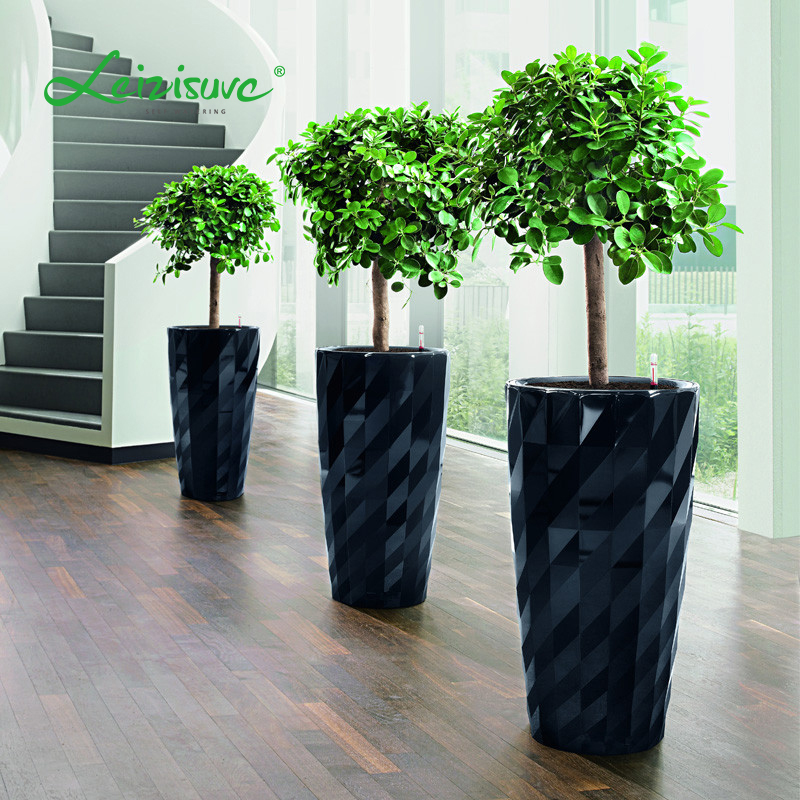Custom mold development for private label planters allows businesses to create unique products that reflect their identity and meet specific customer needs. Whether a company is looking to produce cute painted planters for indoor décor or huge outdoor planters designed for landscaping projects, developing custom molds can help bring these ideas to life with consistency and quality.

When designing private label planters, understanding the role of mold development is crucial. The mold acts as the blueprint for every planter produced, shaping the physical form and surface details. This process enables manufacturers to tailor sizes, shapes, textures, and functional features to fit niche markets. For instance, a collection might include cute painted planters that appeal to urban gardeners seeking decorative accents for their windowsills, alongside huge outdoor planters suitable for parks or commercial spaces.
Custom mold development starts with the design phase, where product specifications are carefully considered. Clients often want to incorporate specific styles or practical elements into their planters. For example, large indoor watering cans may be integrated into planter sets to offer convenience for plant care, blending function with style. Creating molds that accommodate such features requires detailed technical input and collaboration between designers and engineers.
One important advantage of custom mold development for private label planters is the ability to maintain consistent quality across production runs. When using a custom mold, every planter—from a small, cute painted planter to a massive outdoor container—is produced with the same dimensions and details. This consistency is particularly important for private label brands, which rely on uniformity to build customer trust and brand recognition.
Moreover, custom molds enable flexibility in material selection and finish options. Depending on the intended use, private label planters can be made from various materials such as resin, ceramic, or concrete. For example, huge outdoor planters often require durable materials with UV resistance and weatherproofing, while cute painted planters for indoor use might focus more on aesthetic appeal and lighter weight. The custom mold process supports these variations without sacrificing design fidelity.
The integration of large indoor watering cans into planter designs is a growing trend. These watering cans can be designed to complement the planter’s look and make routine watering easier for consumers. Custom molds that include functional elements like built-in watering systems or holders help manufacturers deliver innovative products that meet modern gardening needs. Incorporating these features during mold development ensures seamless production and avoids costly post-production modifications.
Beyond aesthetics and functionality, custom mold development also influences production efficiency. Investing time and resources into precise mold design reduces defects and material waste, pilot to more predictable manufacturing timelines. This is essential for private label planter suppliers who need to meet order deadlines and maintain inventory levels. Whether producing a range that features cute painted planters for gift shops or huge outdoor planters for commercial landscaping companies, reliable mold performance underpins successful supply chain management.
Working with a manufacturer experienced in custom mold development for private label planters allows brands to explore a wider range of product options. For example, brands can request variations in planter size or incorporate thematic designs like botanical motifs on cute painted planters. Meanwhile, huge outdoor planters can be engineered to include drainage systems or reinforced walls to enhance durability. These design freedoms help brands address diverse consumer preferences across different markets.
The development process usually involves prototyping after initial mold creation. Prototypes provide a tangible example of how the planter will look and function once produced. This stage is critical for private label clients to review details such as the paint application on cute painted planters or the capacity of huge outdoor planters. Adjustments at this phase help ensure that final production aligns with brand expectations.
Finally, the ability to combine decorative appeal and practicality through custom mold development creates a significant value proposition for private label planter brands. Whether featuring the charm of cute painted planters in a boutique collection or the robustness of huge outdoor planters in urban landscaping, these products attract diverse customer bases. Supplementing these with large indoor watering cans further enhances the appeal by offering a holistic gardening experience.
In conclusion, custom mold development for private label planters is an essential process that supports brand differentiation, quality control, and product innovation. By focusing on design accuracy and functional integration—whether it’s creating cute painted planters, huge outdoor planters, or coordinating large indoor watering cans—brands can offer distinctive planter solutions that meet market demand. This approach also contributes to efficient manufacturing and consistent product delivery, strengthening a private label brand’s presence in the planner industry.

 English
English 日本語
日本語 Español
Español Deutsch
Deutsch عربى
عربى
